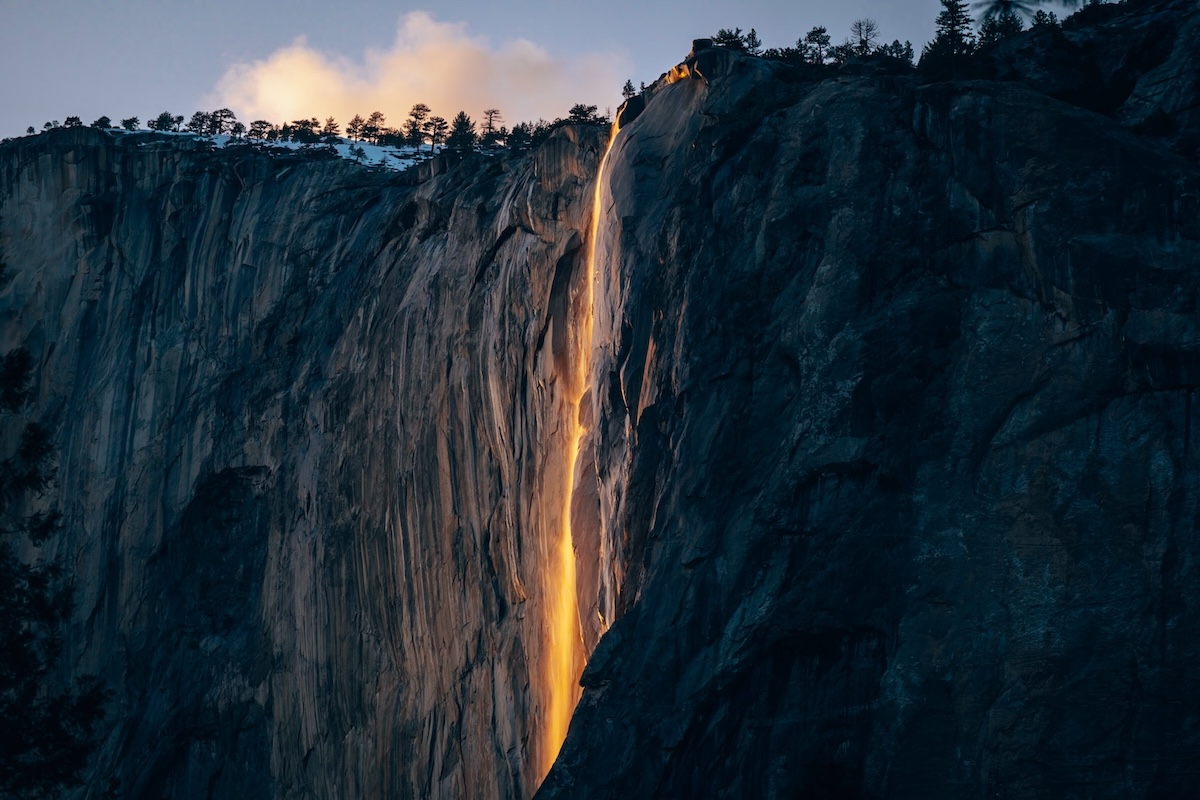
Witnessing the natural phenomenon that is the Yosemite Firefall is not to be missed! That being said, it does require a fair amount of research and planning. But what magical event doesn’t?! We made three attempts to view Firefall and learned a lot in the process. So, now we are here to share with you everything we wish we knew before we went.
The first thing to note is that ‘Firefall burn’ happens on Horsetail Falls. You may see reservations, signs, directions, or other information in relation to Horsetail Falls. We have seen the two terms used interchangeably and it helps to know they are the same location!
WHEN IS FIREFALL IN 2025?
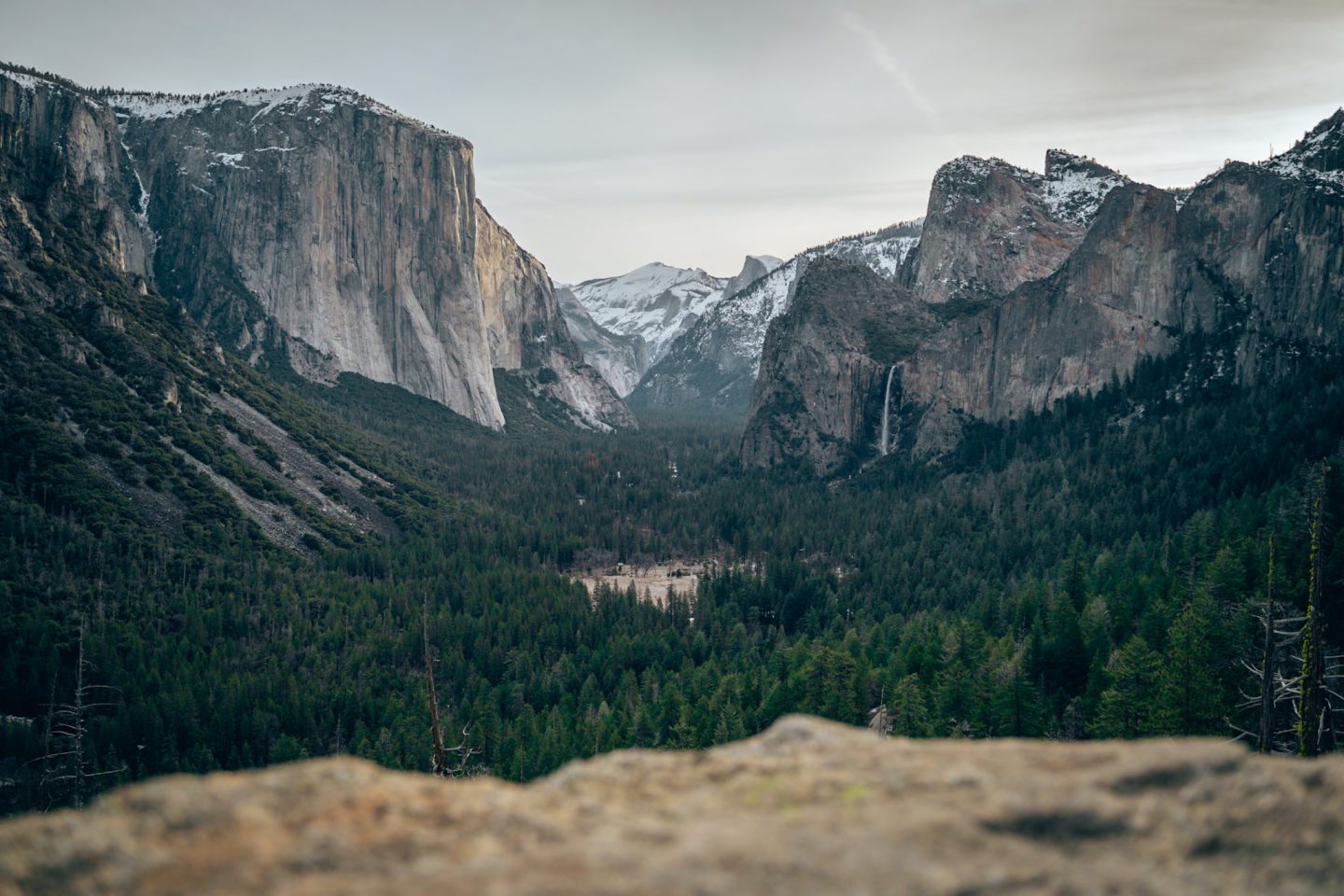
This question is actually two questions: What time of year is Firefall? And what time of day is Firefall? Timing is everything when it comes to witnessing this natural phenomenon. Both the time of year and the time of day play important roles in whether or not the falls ‘burn’.
WHAT TIME OF YEAR IS FIREFALL?
Yosemite Firefall happens each year across a 3-4 week period in February, with the best chances being in the latter half of the month. The National Park Service estimates that the best time to see Firefall in 2025 will be between February 8th and 23rd. This is the only time of year where the angle of the sunset creates the molten glow out of Horsetail Falls. This is also often a very cold time of year! Some viewers wait for hours standing in snow, and other years there’s no snow in the valley and it’s a lovely 50ºF.
Because the weather at this time of year can be unpredictable, it is best to come prepared. Both within and out of park boundaries, there can be tire chain requirements at any time. When arriving at the park, the ranger will ensure you have your chains in order to continue. We would advise carrying them with you even if you think you won’t need them. We used these tire socks, which met legal requirements and worked well instead of carrying around big, bulky chains.
WHAT TIME OF DAY IS FIREFALL?
For about 20 minutes around sunset, if all the conditions align, you will get to witness pure magic. If you’re in the right spot, the skies are clear, and there’s enough water coming over the falls, you’ll see the burn of Yosemite Firefall. For reference: on Feb. 22, 2024 we could begin to see the glow at 5:12PM and being completely nonexistent by 5:44PM. You only have a small window to catch this wonder!
Although the main event is not until sunset, to get a good spot, you’ll need to plan on arriving much earlier. With the reservation system in place, the weekend days that required a reservation had far fewer people. The weekdays did not need reservations, so getting there early was key! We would arrive around 2 hours before sunset and on certain days it still felt crowded when trying to find a spot.
DO YOU NEED RESERVATIONS TO VIEW YOSEMITE FIREFALL IN 2025?
In 2021, Yosemite instituted a reservation system for Firefall. A Day-Use Vehicle Reservation is required on specific days. For 2025, vehicle reservations are only required on the weekend days (Saturdays and Sundays) as well as the President’s Day Holiday: Feb. 8, 9, 15, 16, 17, 22 and 23. The vehicle reservations are required to enter the park, not just to view Firefall. If you book a lodge or a campground in the park, you do not need to book a separate vehicle reservation. Vehicle reservations at the time cost $2.00 and are good for 7-day entry.

For 2025 Firefall viewing, half of the reservations for vehicle entrance become available on November 18th 2024 at 8am Pacific Time. The remaining half become available at 8 a.m. PST two days prior to your visit date. So if you’re planning to visit on February 22nd, reservations will become available on February 20th.
Hodgdon Meadow, along with Wawona Camp 4 which is typically first-come, first-served, will both require reservations for visit during February 8th and 23rd. Reservations for these two campgrounds became available on December 15th 2024 at 8am Pacific Time.
Because this is such a popular time of year to visit Yosemite, it is helpful to know in advance that you have a reservation! Then you can start to make all the other necessary arrangements, since the park’s accommodations and campgrounds, and nearby hotels and Airbnb’s start to book up quickly. Prices can also tend to rise to account for the increased demand. Keep that in mind when you’re planning!
WHAT CAUSES FIREFALL?
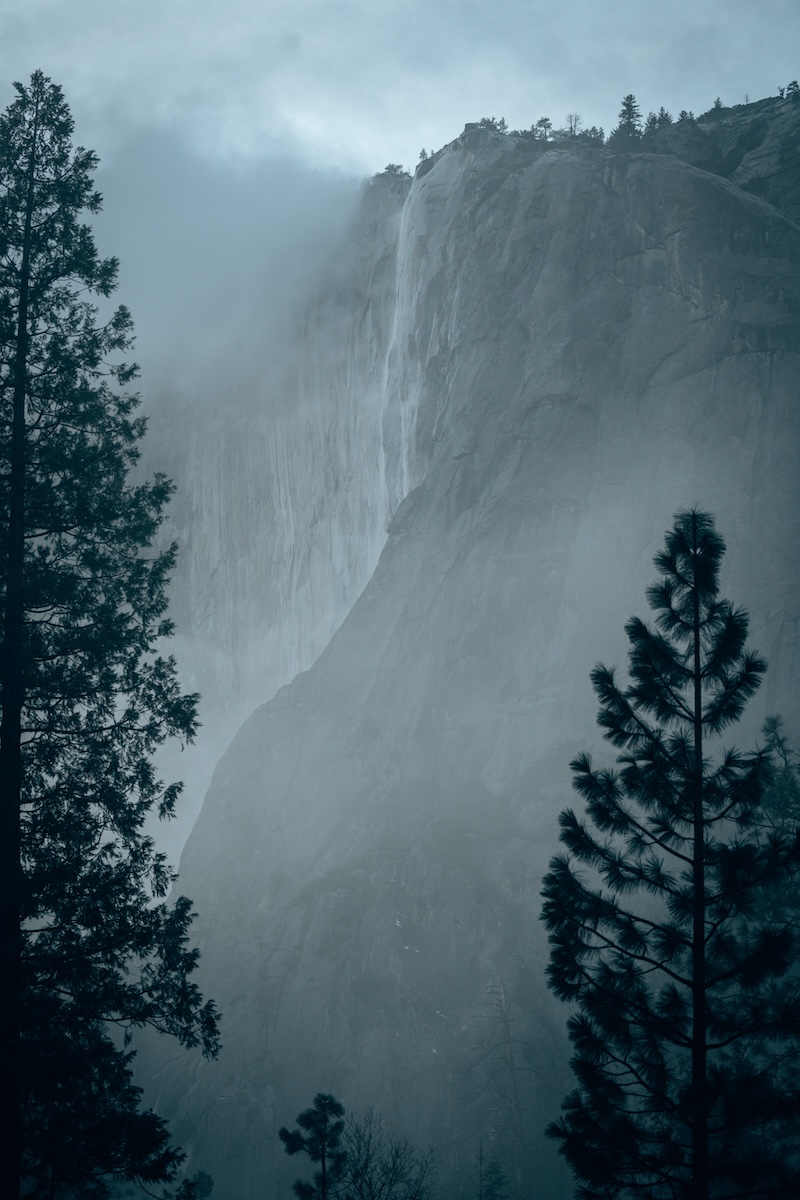
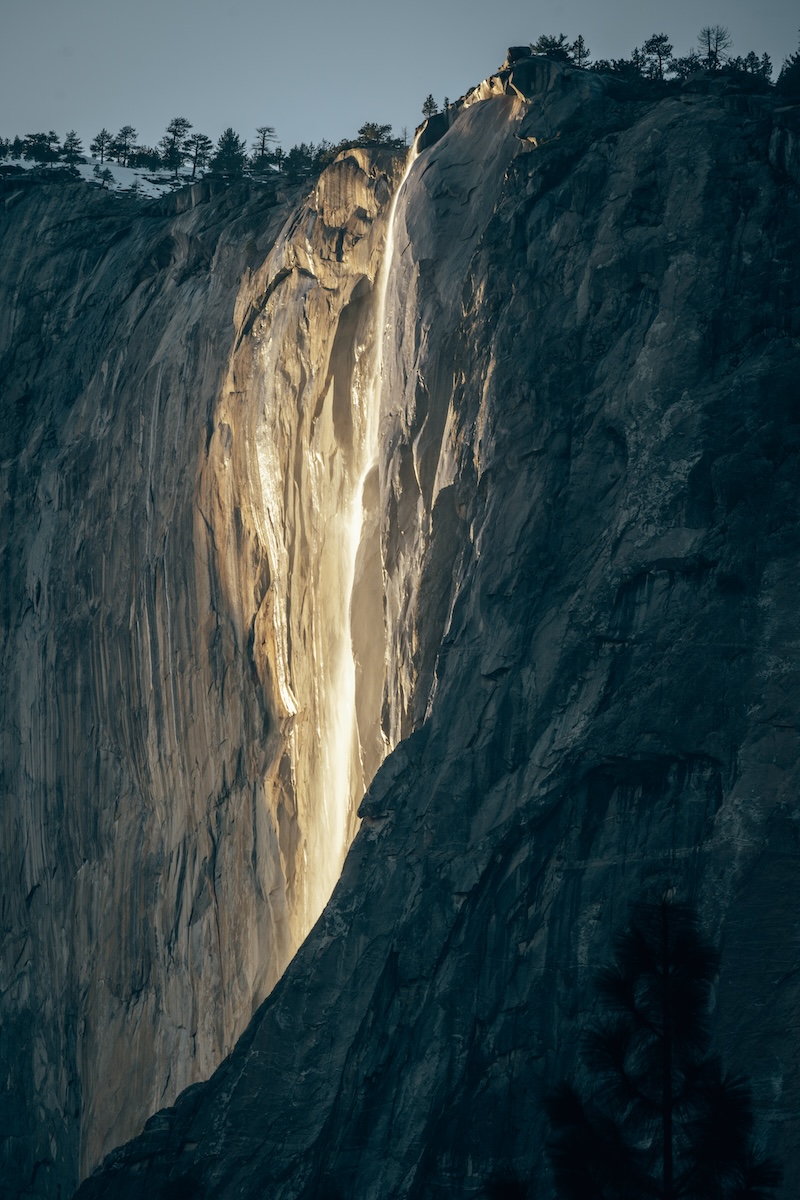
You might not know it, but this is also a two-part answer. The Yosemite Firefall we know today is a naturally occurring phenomenon that happens for a short time period each year. What most people don’t realize is that there was a man-made firefall.
NATURAL PHENOMENON
What causes the Yosemite Firefall is the angle of the sun shines on Horsetail Falls and the water flowing over the edge reflects the sunlight. This makes the falls appear to glow like lava or burn like fire instead of water. Firefall is such a unique phenomenon because the conditions have to align perfectly in order to observe the spectacle.
First and foremost, you need clear skies. The more directly that the setting sun can shine onto the falls, the better it can be! We have heard stories of there being clouds in the sky and the sunset below the clouds to still create the effect, but you’re still in for better luck on a clear day. If it’s raining or snowing, there’s essentially no chance you’ll get to see the show. But weather changes fast in Yosemite – try again the next day!
Next, and this seems obvious, there needs to be water flowing over the falls. With no water or even a small trickle, there is not much to generate the reflection and create that lava-flow phenomenon. Horsetail Falls gets its water from snow melt. This means it has to have snowed recently and it has to be warm enough to melt off snow to generate a fall.
See what we mean by perfect conditions aligning?!
MAN-MADE VERSION
On the other hand, there is history of another Firefall. The man-made Firefall in Yosemite, occurred between the late 19th century and the mid-20th century. It involved pushing actual embers from a bonfire over the edge of Glacier Point to create a cascading effect of glowing fire.
The Yosemite Firefall tradition began around 1872 at the Glacier Point Hotel. It was initiated by James McCauley, the hotel owner at the time. McCauley would build a large campfire on Glacier Point each evening and then kick the glowing embers over the cliff edge to create the illusion of a waterfall made of fire.
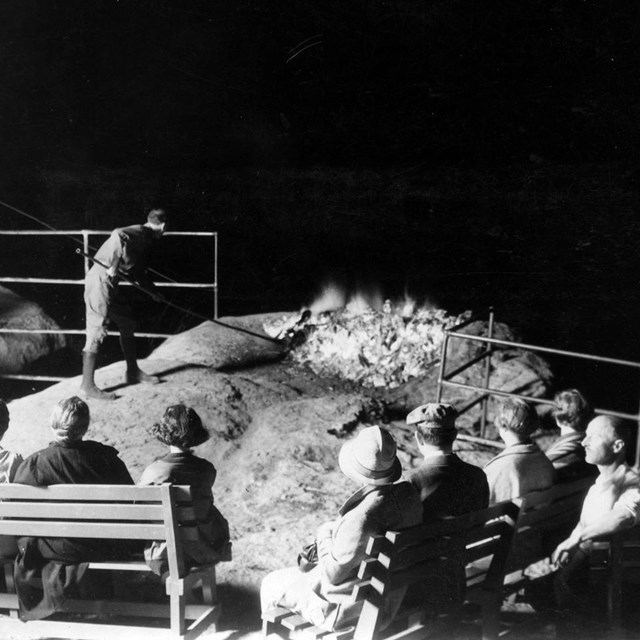
The Firefall gained widespread attention during the early 20th century. During the summer, every evening at 9:00 PM, a pile of burning embers would be pushed from Glacier Point, 3,200 feet above the valley floor. The glowing embers would fall, creating a bright, fiery spectacle visible to the crowds gathered below. By the 1960s, the National Park Service began to feel that the artificial event was at odds with their conservation goals. In 1968, the National Park Service officially discontinued the Firefall.
While the man-made Firefall was discontinued, the term “Firefall” has lived on, now referring to the natural Firefall that occurs in February. The man-made Firefall remains a memory for many who witnessed it, a symbol of a different era in Yosemite’s history.
WHERE TO VIEW FIREFALL?
When it came to where to view Firefall, we had trouble finding information. That is partly because different sources called it different things. Mentions to Firefall are seasonal, while Horsetail Falls are visible all year, but both are referring to same phenomenon at this one time of year. Sources also warned about limited parking and a bit of a hike, but it was unclear on how to navigate these obstacles. So here is a map directly from NPS.gov with the most popular viewing area, where to park, and restricted areas.
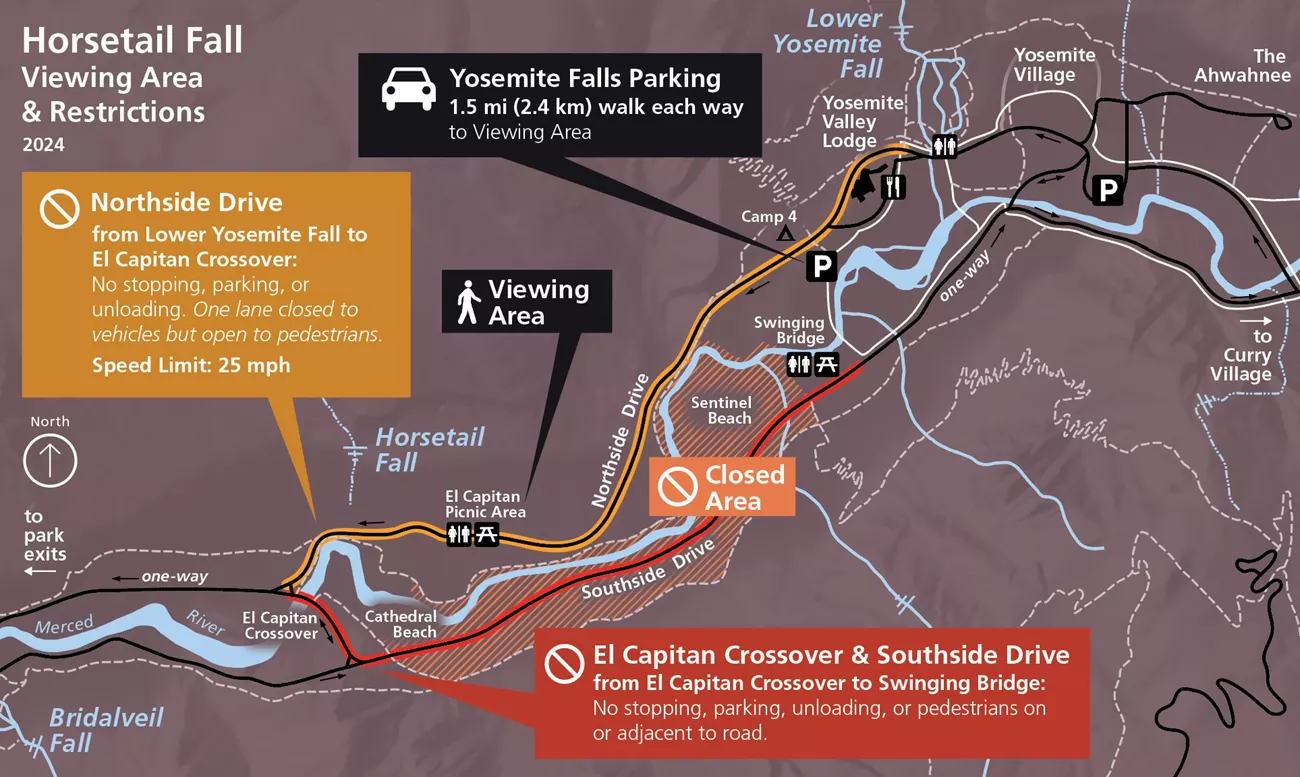
EL CAPITAN PICNIC VIEWING AREA
The most popular area to view Yosemite Firefall is from El Capitan Picnic Viewing area. The national park accounts for this and has directional signs for parking in the Yosemite Falls parking lot directly across from Camp 4. We found that the lot started to fill up around 3 hours before sunset – so arrive early if you can! The reservation system in place should ensure there’s enough space for everyone, but we like to plan ahead. If this parking is full, park at Yosemite Village or Curry Village and use the free shuttle to get to Yosemite Falls parking/Yosemite Valley Lodge. Park rangers stationed at the lot can answer additional questions.
From the parking lot, the left lane of the one-way loop around the valley is sectioned off and dedicated to pedestrians to walk safely to the viewing area. The paved walk is about 1.5 miles each way to and from the viewing area, depending on how far you want to go to find your spot. We found the walk to be easy and flat, so we didn’t have to worry much about hiking in darkness on ice and snow.
There are different viewing angles and there is plenty of room for everyone (and all of their camera gear and tripods). It gets crowded the closer it gets to sunset and you’ll see folks filling in every bit of open ground. On the weekdays where there was no reservation system in place it was actually much more crowded and folks were trying to see phenomenon by circling the loop road and looking out their car windows.
WHAT TO BRING FOR FIREFALL VIEWING
As mentioned, it is about 1.5 miles walk to get to the viewing area. You’ll only want to bring what you can comfortably carry. But you’ll also want to bring everything to keep you comfortable! Here is a list of everything we carried with us. And this is in addition to dressing warmly with beanies, base layers, jackets and waterproof hiking boots!
- Lightweight chairs
- Flashlight or headlamp
- Extra warm water resistant blanket
- Small folding table
- Hand and feet warmers
- Waterproof tech gloves
- Water
- Snacks
- Camera + tripod
- Portable phone charger
If you head to the viewing area early, you’ll have a couple hours of sitting before the sunset show begins. You will want to account for cold, hunger, thirst, and boredom. There are a few porta-potties spread out between the parking lot and viewing area, but no other amenities.
Dogs are allowed to join you at the El Capitan Viewing area as well as on the paved walk. This will require bringing extra items to ensure your dog is also comfortable and stays warm such as a picnic-type blanket, or even doggy boots to protect their feet. You will also want to consider dog-friendly accommodations around the park as there are many restrictions.
Please remember to pack out what you bring in! Picking up your trash and taking your belongings ensures that people can continue to witness this phenomenon for years to come. Always stick to the Leave No Trace Principles when visiting national parks and outdoor spaces.
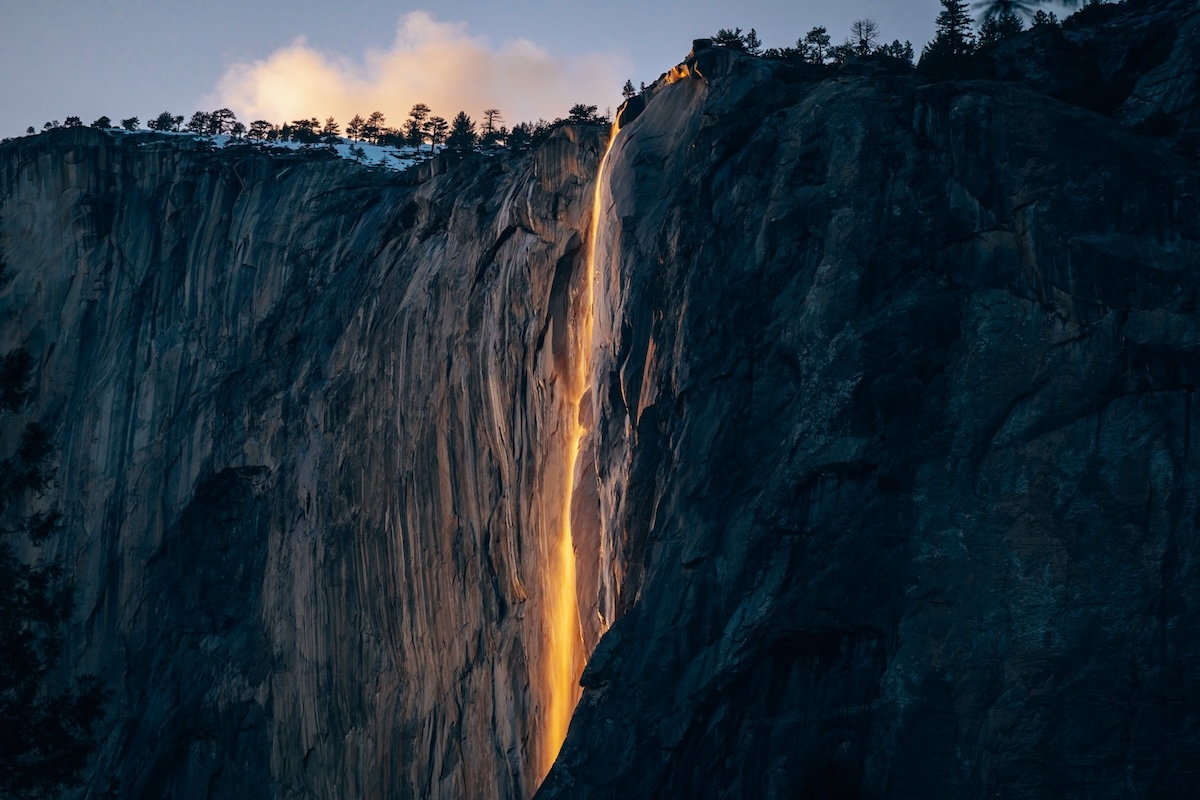
CHAIN REQUIREMENTS IN YOSEMITE
During the winter months, Yosemite National Park often requires tire chains for vehicles due to snow and icy road conditions, even if your car has all-wheel or four-wheel drive. Chain requirements can vary depending on the weather and are categorized into three levels, ranging from carrying chains in your vehicle to mandatory chain installation, regardless of vehicle type. These requirements are enforced on roads like Highway 120, Highway 41, and Glacier Point Road, which are prone to icy conditions. Visitors should check the latest road and weather updates on the National Park Service website or call the park’s road conditions hotline before heading out. It’s also a good idea to practice installing chains beforehand, as conditions can change quickly, and proper preparation ensures a safer, more enjoyable trip to Yosemite.
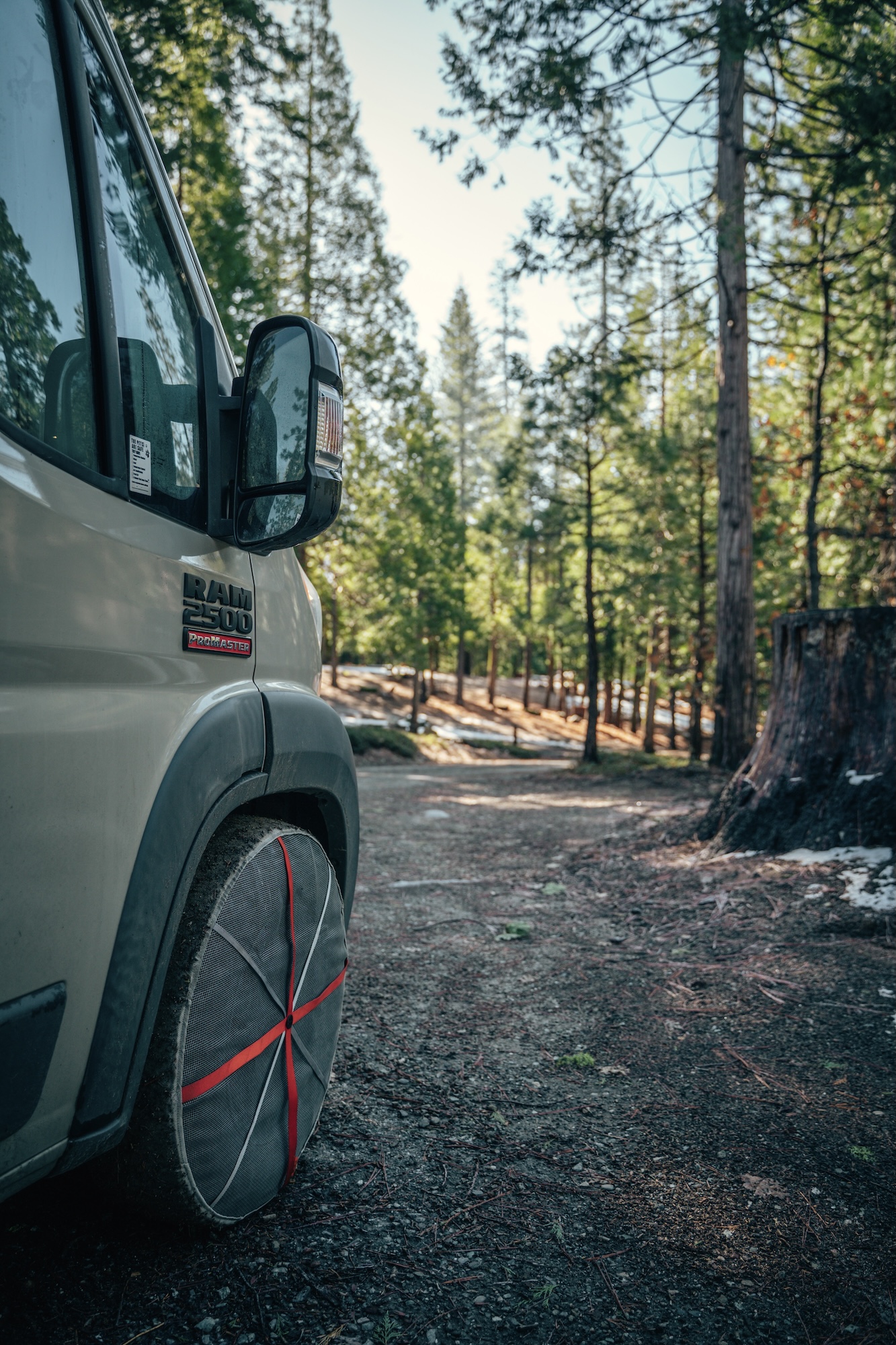
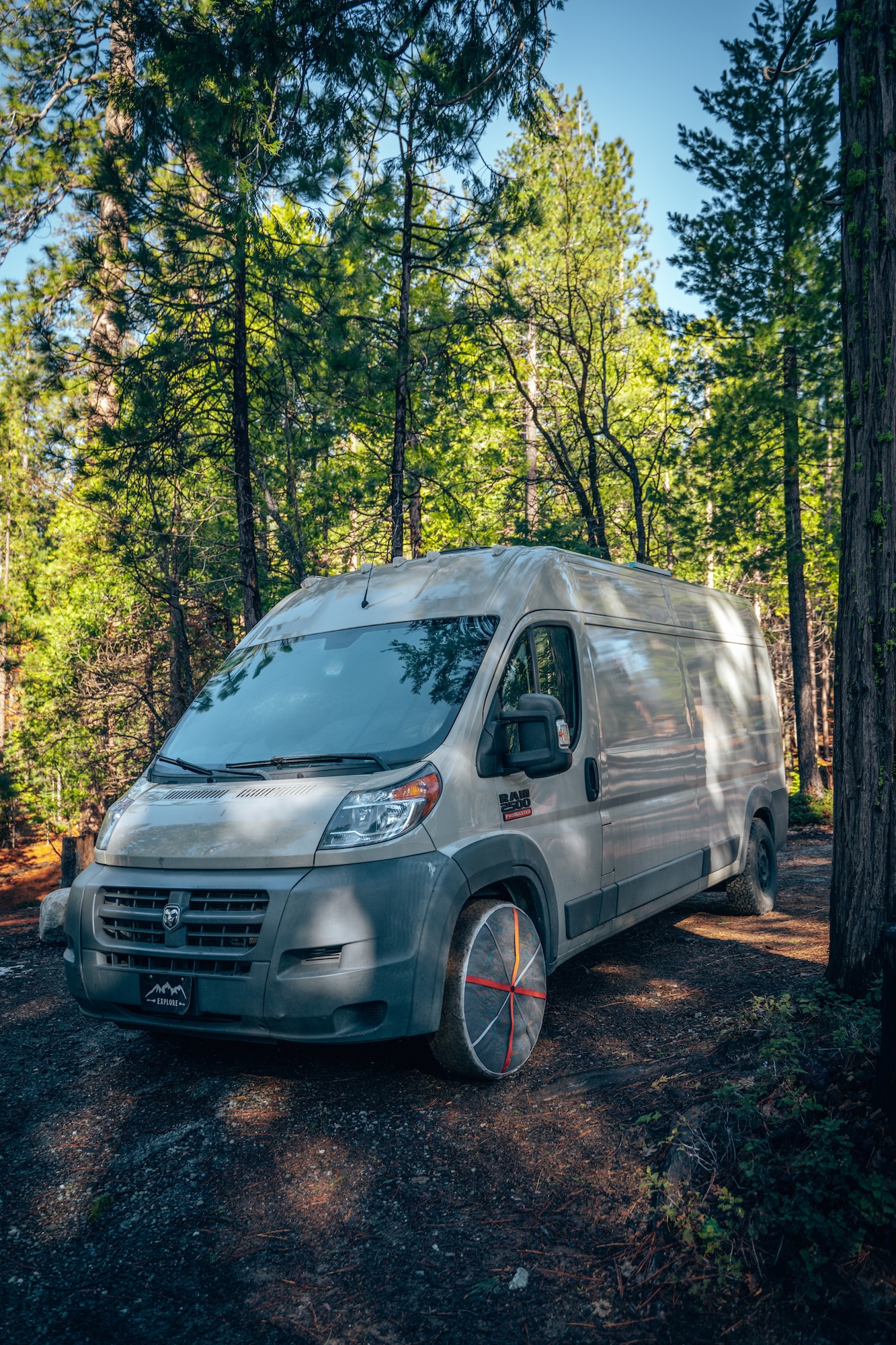
There are often places (gas stations, repair shops etc) outside of Yosemite that will offer chain rentals as well if you don’t own any or don’t want to purchase any. Another alternative, which is what we opted for, is something called Snow Socks. These are lightweight and compact, and super easy to install and take off. They’re also approved to be used in place of chains anywhere that chain requirements are in place.
YOSEMITE FIREFALL: WHAT TO KNOW BEFORE YOU GO
Despite the planning efforts, cold weather, and crowds that you will undoubtably battle, the trip is worth it! Getting to be in the presence when the falls burn is truly a magical experience that you won’t soon forget. Hopefully with all this information in one place, you will be able to successfully plan your trip to view Yosemite Firefall!
If you have any other questions or feel like we left something out, let us know below in the comments!